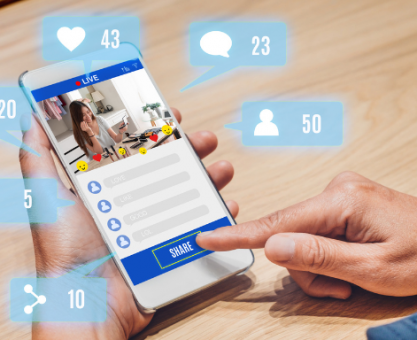Executive Summary
-
Discover how personalized content can transform B2B sales strategies.
-
Learn about the benefits and challenges of implementing personalization in tech firms.
-
Explore a real-world case study illustrating successful personalized marketing.
-
Gain expert insights and strategic tips for enhancing your B2B sales approach.
Introduction
In today’s hyper-competitive market, B2B sales strategies are continuously evolving. Tech firms, in particular, are seeking innovative ways to capture and retain clients. One emerging trend is the use of personalized content, which not only builds stronger relationships but also enhances conversion rates. This article delves into a compelling case study of a tech firm that successfully revolutionized its B2B sales approach through personalized marketing. By the end, you’ll understand the strategic importance of personalization and how it can be effectively implemented in your sales strategy.
Definitions / Context
Personalized content in B2B sales refers to the strategic creation and delivery of tailored messages, offers, and experiences to individual business clients based on their specific needs, preferences, and behaviors. This approach moves beyond traditional one-size-fits-all marketing, leveraging data analytics and customer insights to craft bespoke solutions.
Benefits / Pros
-
Enhanced Engagement: Personalized content increases client engagement by addressing their unique challenges and interests.
-
Improved Conversion Rates: Tailored messaging leads to higher conversion rates as content resonates more closely with client needs.
-
Customer Loyalty: By consistently providing value through personalized experiences, businesses can cultivate long-term relationships and customer loyalty.
Risks / Cons / Challenges
-
Data Privacy Concerns: Handling and analyzing customer data requires stringent compliance with privacy regulations.
-
Resource Intensive: Developing and maintaining personalized content strategies can be resource and time-intensive.
-
Scalability Issues: Scaling personalized approaches across larger client bases poses significant challenges.
Step-by-Step Process
How to Implement a Personalized Content Strategy:
-
Data Collection: Gather comprehensive data on client preferences and behaviors.
-
Segmentation: Divide your client base into segments based on shared characteristics.
-
Content Creation: Develop bespoke content tailored to each segment’s needs.
-
Technology Utilization: Use CRM and marketing automation tools to deliver personalized content efficiently.
-
Feedback Loop: Continuously gather client feedback to refine and optimize the personalization strategy.
ABC Tech Firm, a mid-sized software company, faced stagnating sales growth. By shifting to a personalized content strategy, they segmented their client base and crafted tailored content for each segment. This approach led to a 30% increase in engagement and a 20% rise in sales within six months, showcasing the transformative power of personalization.
Case Study: ABC Tech Firm
Expert Tips / Strategic Insights
-
Regularly Update Data: Ensure your data is up-to-date to maintain the relevance of personalized content.
-
Balance Personalization with Automation: Use automation tools to deliver personalized content efficiently without sacrificing quality.
-
Monitor for Compliance: Stay updated with data privacy regulations to avoid legal pitfalls.
Tools / Resources / Calculators
-
CRM Software: Tools like Salesforce and HubSpot for efficient data management.
-
Marketing Automation Platforms: Use Marketo or Mailchimp for streamlined content delivery.
-
Data Analytics Tools: Leverage Google Analytics for insights into client behavior.
Conclusion
Personalized content is revolutionizing B2B sales strategies, offering tech firms a powerful tool to enhance engagement, conversion rates, and customer loyalty. By understanding and implementing personalized marketing effectively, businesses can gain a competitive edge. Ready to transform your sales approach? Speak to our advisors for a tailored strategy.

















